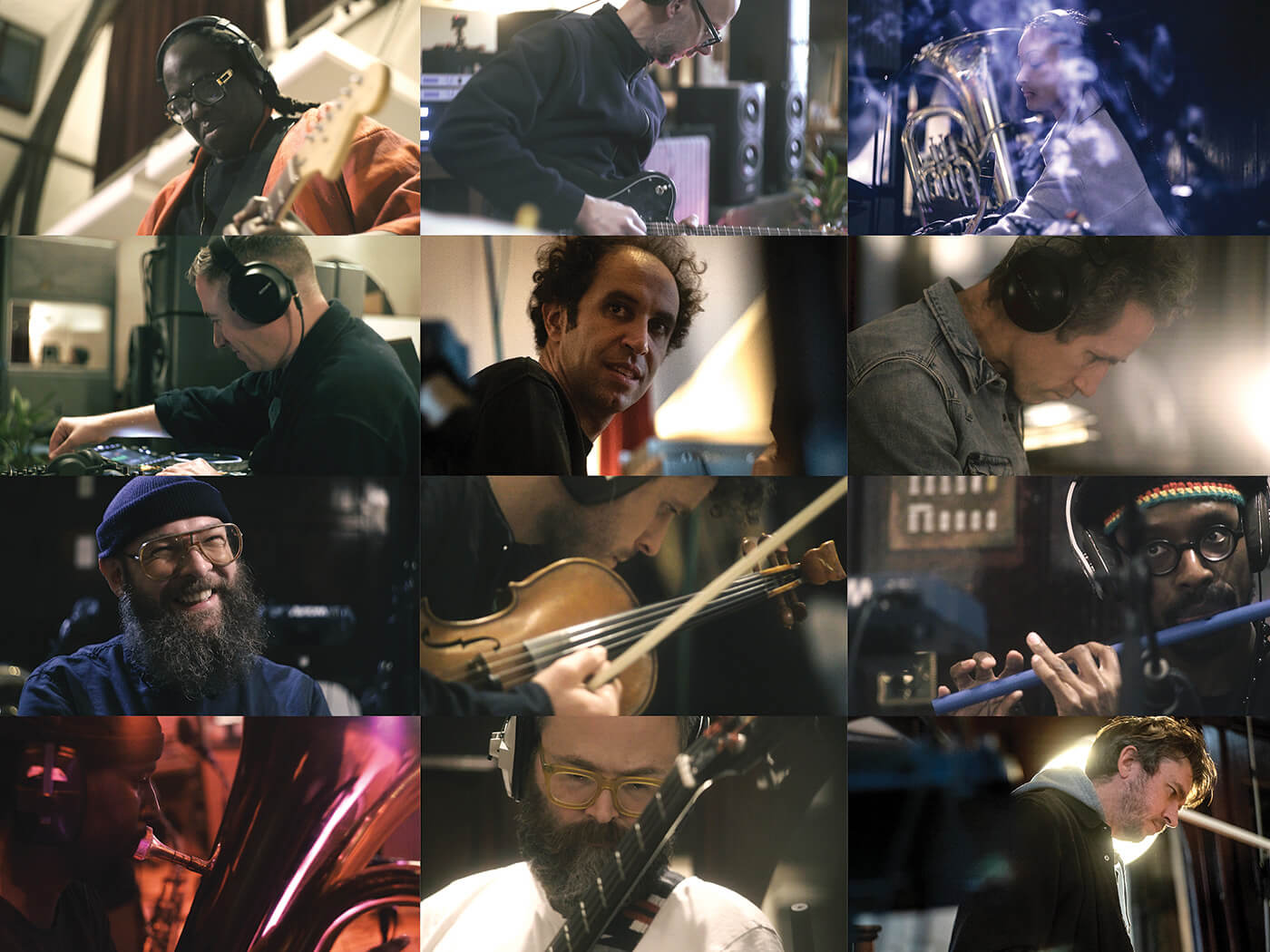There have been plenty of projects where artists have faithfully covered entire classic albums – from Sgt Pepper to Dark Side Of The Moon, from Kind Of Blue to OK Computer – putting a respectful spin on the existing melodies and chords. Bitches Brew, Miles Davis’ groundbreaking 1970 double album and a regular in ‘best ever’ polls, is one canonical release that resists such treatment. It is not a record that can be transcribed and reduced to dots on a page. In fact, you’d be hard pressed to hum any of it. Its essence lies in its unorthodox choice of sounds – effects-laden Fender Rhodes pianos; Bennie Maupin’s rumbling bass clarinet; the shocking, non-tonal howl of John McLaughlin’s discordant guitar. Bitches Brew is also the product of a very particular methodology: musicians improvising freely over a thick, dissonant fug. The chords barely change. Melodies or riffs are rarely repeated.
London Brew is a “reimagining” of the Bitches Brew album, assembled by Grammy-winning Swedish producer Martin Terefe. Terefe is best known for working on big albums by the likes of KT Tunstall, Ron Sexsmith and A-ha while based in London over the last 20 years, but he’s also taken an interest in the current UK jazz scene, and between lockdowns in late 2020, he assembled several top British jazzers to mark what would have been Bitches Brew’s 50th anniversary. These musicians might have grown up playing American jazz but have often set themselves in opposition to it, borrowing instead from Caribbean, West African, South African and Indian music, as well as UK club culture. It’s why this take on Bitches Brew maintains a distinctly London accent.
Interestingly, some of the key voicings of the original album are absent. There is no trumpet, for starters. The lead instruments are the twin tenor saxophones of Nubya Garcia and Shabaka Hutchings, while Theon Cross’ tuba subs in for Maupin’s bass clarinet. Playing the role of McLaughlin is guitarist Dave Okumu, laying down heavy, distorted riffs, while instead of Joe Zawinul, Chick Corea and Larry Young we have Nick Ramm and Nikolaj Torp Larsen, both playing Rhodes and other keyboards.
The first track is close to the mood of the original album – a 23-minute jam over a mutating funk beat, filled with light and dark. Horns quack, guitars and keyboards fizz and shimmer; the saxophonists switch to flutes; suddenly the drums drop out for all the band to play ruminative improvisations, before slowly building back into a furious funk rhythm. It’s an absolutely titanic piece of modal jazz.
On the next two tracks, the band dig deep into other Davis innovations of that era. On the 16-minute “London Beat Part 2”, an echo-laden dub groove is topped by Okumu playing a monstrously heavy guitar solo, reminiscent of McLaughlin’s freakout on “Right Off” from A Tribute To Jack Johnson. Before long, the entire piece has mutated into a gentle, drumless waltz; eventually it moves into an aqueous, atmospheric coda that recalls something from In A Silent Way. “Miles Chases New Voodoo In The Church” is more reminiscent of Davis’ mid-’70s sessions on albums like Get Up With It – it starts as a furious funk groove, with Hutchings and Garcia playing their saxophones through a harmonizer pedal (of the kind used by ’80s Miles sidekick Kenny Garrett) that splits their sound into fourths. It then mutates into a galloping waltz, where tenor sax, clarinet, violin, tuba and melodica all play layers of interlocking improvisations.
As the album goes on, the tracks start to sound less like the original Bitches Brew sessions. “Mor Ning Prayers” is a 10-minute groove that starts with Okumu’s backwards-sounding guitar over a rolling Afrobeat groove. “Nu Sha Ni Sha Nu Oss Ra” is a rare moment of meditation, with Shabaka Hutchings soloing over a pentatonic scale. “Bassics” is a weightless, drumless piece where double bass, tuba, melodica and flute interlock over the sound of a throbbing heartbeat. Even less Miles-ish is the album closer “Raven Flies Low”, which starts as a dubby groove, mutates into a rolling waltz, and then closes on an eerie, almost symphonic trio for violin, bowed bass and E-bowed guitar.
Brilliant though many of these musicians have been in numerous other contexts, this might be some of their finest work: a thrilling 90-minute voyage into the outer regions of electric jazz.

